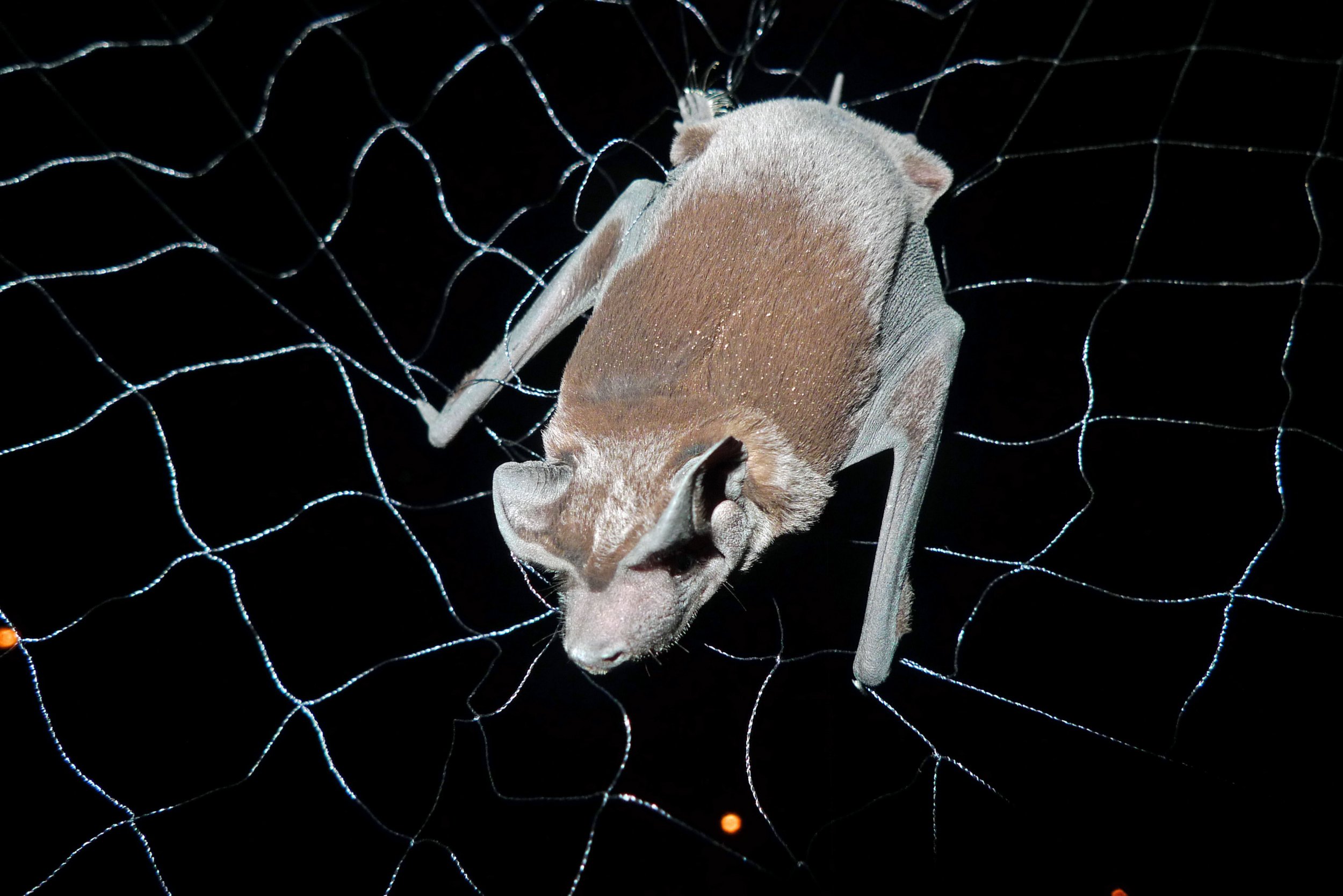
Until now, two species of dog-faced bats—a type of bat known for its canine-like face—remained unknown to science. But after careful examination of museum collections and capturing wild specimens, researchers have formally recognized and named the two species.
The Waorani dog-faced bat and the Freeman's dog-faced bat live in Ecuador and Panama, respectively. Like the six other known species of dog-faced bats, these two new ones are particularly fast, making it difficult to catch and study them.
But specialized mist nets, and a little luck, helped. In 2012, researchers in Panama set up nets and captured 56 Freeman's dog-faced bats, according to Smithsonian. They also set up recorders to capture the animals' calls, which they use in echolocation to find their prey. In the future, the researchers could use those recordings to find and identify wild bats by sound alone.
At first, the researchers were hard-pressed to determine whether either species was new and unique. "All the bats of the Cynomops genus [dog-faced bats] look very similar in the hand," Thomas Sattler, a postdoctoral student at the University of Ulm, told Smithsonian.
It was only when the research team, which included zoologists from Brazil and Panama, analyzed the DNA and compared it to that of known bats that the team realized they'd caught a new species, now called Freeman's dog-faced bat. The scientists described the new species, named after bat researcher Patricia Freeman, in a paper in the journal Mammalian Biology.
As for the Waorani bats, DNA helped there, as well, along with an extensive collection of dead bats at museums across the world. The scientists analyzed DNA from 242 specimens from archival collections in North America, South America, and Europe. The collections mostly contained known species, but lumped among the specimens, the researchers discovered, was a unique species never before known: the Waorani dog-faced bat.
The Waorani dog-faced bat, named after the Waorani tribe of Ecuador, is slightly smaller than Freeman's dog-faced bat. The sound of their calls is still undocumented by scientists. But the unique DNA and body measurements of the Waorani dog-faced bat identified it as a new species.
Bats are a vast and diverse animal, comprising a fifth of all mammals on Earth, according to LiveScience. Bat Conservation International claims that there are more than 950 recognized species of bats, and scientists think that there may be hundreds more yet to be discovered.
But there are only six other species of dog-faced bats, making these two discoveries rare and striking.
Uncommon Knowledge
Newsweek is committed to challenging conventional wisdom and finding connections in the search for common ground.
Newsweek is committed to challenging conventional wisdom and finding connections in the search for common ground.
About the writer
Kristin is a science journalist in New York who has lived in DC, Boston, LA, and the SF Bay Area. ... Read more
To read how Newsweek uses AI as a newsroom tool, Click here.








